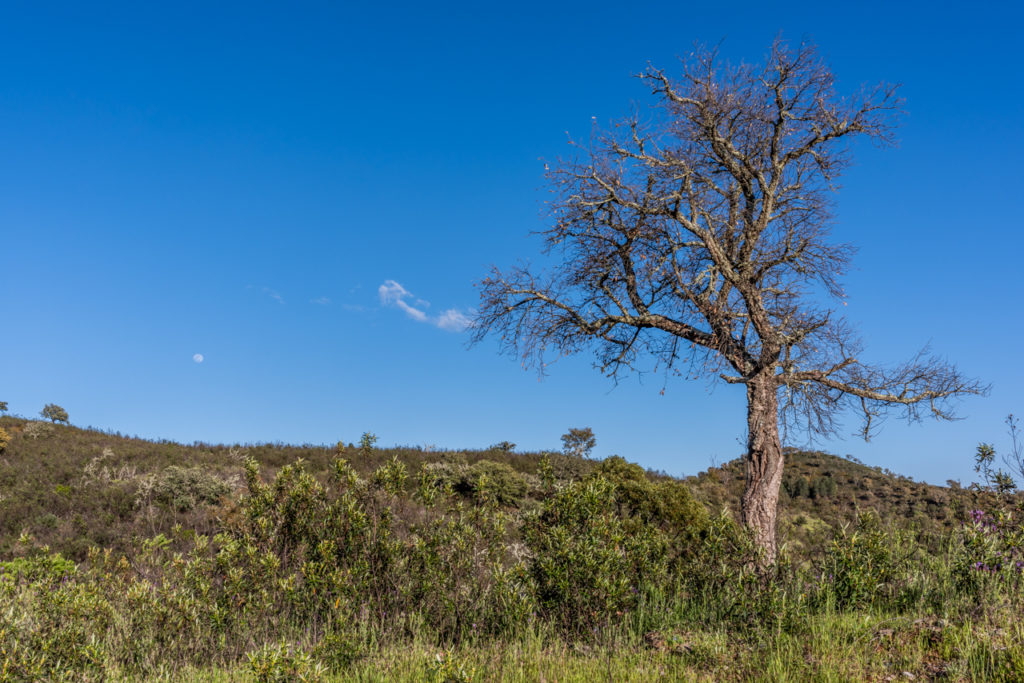Loulé participated in the 4th meeting of the European project “Sudoe-Remas/Interreg” which took place from 4 to 11 March.
As is currently the case with most events, the pandemic forced it to be held through digital platforms (Zoom) and it was online that those involved debated issues related to the risk management of greenhouse gas emissions from forest fires and the path that is being taken to integrate this matter in municipal policies for adaptation to climate change.
The project's pilot areas include a parcel in Serra do Caldeirão, but also the Aquitaine region in France and Chequilla (Guadalajara) and Chelva-Andilla (Valencia) in Spain.
And it is from the experience in these four zones that the aim is to promote the prevention, management and development of an action plan against the risk of greenhouse gas emissions from large carbon stocks stored in vegetation and soils, due to to forest fires in vulnerable forest ecosystems of South West Europe.
Serra do Caldeirão has been, in the Algarve region, one of the areas most affected by forest fires over the years, with emphasis on the fire that consumed part of this forest area in 2004, which is why this is an important territory for the assessment of data that can lead to concrete actions.
The technical team of the Municipality responsible for monitoring the project, led by the Forestry Technical Office of the Municipal Civil Protection Service, brought to this meeting a presentation on the guidelines for the creation of a working group whose mission is to initiate a continuous process of elaboration of regional strategies to prevent and manage the risks of emission of greenhouse gases, increasing the capacity of municipalities and other entities, public or private, to incorporate risk management in their action policies in defense of the forest and adaptation to climate change.
The objectives of this group include the exchange of knowledge at the level of local management between regional authorities, educational institutions, companies and associations, the dissemination of the practices included in this strategy and their integration and the awareness of the local community on matters related to risk emissions from forest fires.
Forest ecosystems are the largest manageable terrestrial carbon sinks with the ability to mitigate climate change. When a forest fire starts, combustion releases greenhouse gases that contribute to global warming and hence climate change.
There are studies that estimate the carbon contained in vegetation and soil, as well as the CO2 emissions from a fire. However, currently, the risk that these emissions may be produced by fire is still little known or quantified and, therefore, it is not included in fire prevention and management plans, nor is it determined which areas are critical to present a higher risk. emissions, which can be used to focus efforts on prevention, management, extinction and restoration of carbon pools.
This is therefore the main objective of the European REMAS project “Managing the risk of greenhouse gas emissions from forest fires (2019-2022)”, co-financed by the Interreg Sudoe Program through the European Regional Development Fund (ERDF).
This work is being carried out in transnational cooperation, in which different entities from Southwest Europe participate.
The project, approved in June 2019, is led by the Association of Forest Municipalities of the Valencian Community (AMUFOR) and has prestigious partners such as the Polytechnic University of Valencia, the University of Valencia, the Provincial Council of Valencia, the National Research Institute and Agricultural and Food Technology, the Loulé City Council, the Higher Institute of Agronomy, the National Higher School of Agricultural Sciences in Bordeaux.
“Adaptation to climate change has been one of the priority lines for this executive. In line with this European project, we continue to work to ensure that this risk is considered in prevention and management plans, that the vital role of vegetation and soil in mitigating and minimizing carbon emissions from forest fires is recognised», stresses Vítor Aleixo, mayor of Loulé.
Loulé will host the next REMAS meeting that will take place at the end of September, in face-to-face format, if the conditions for the evolution of the pandemic so allow.



















Comments